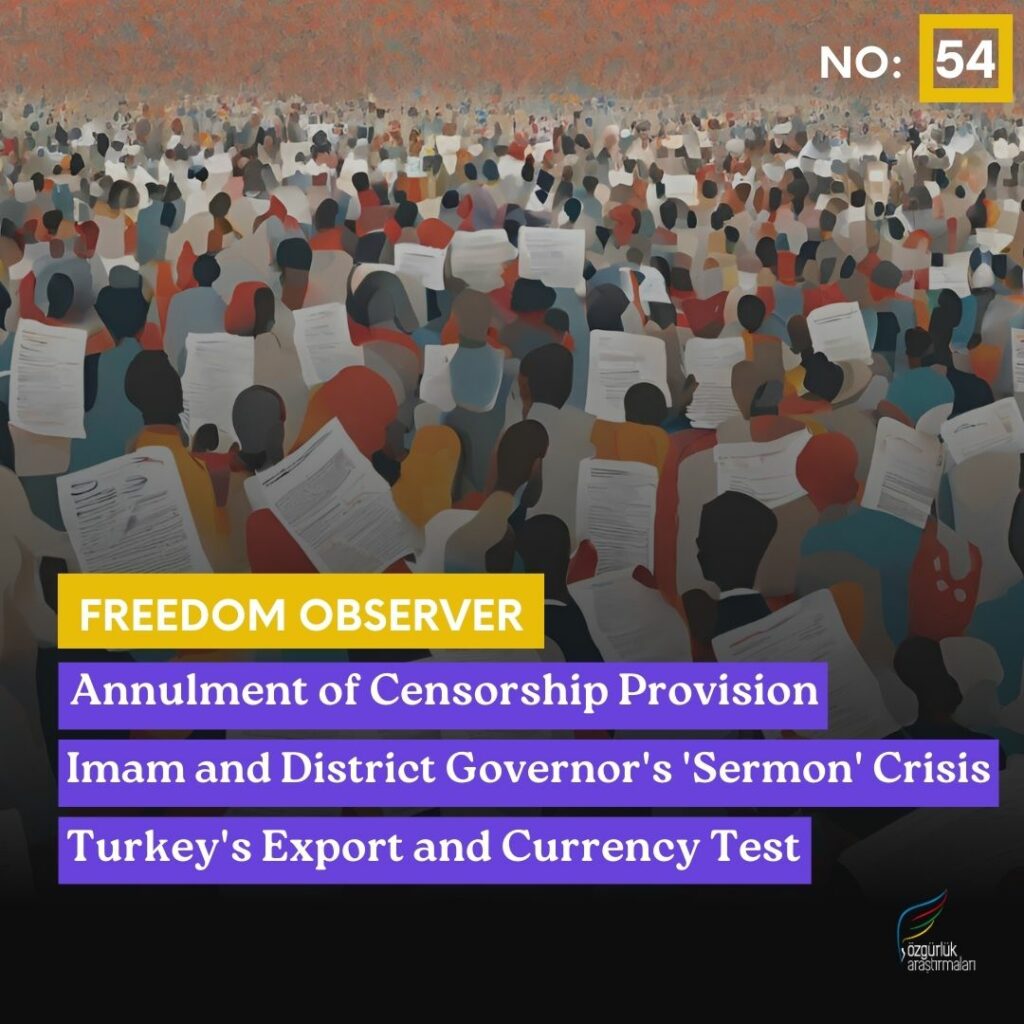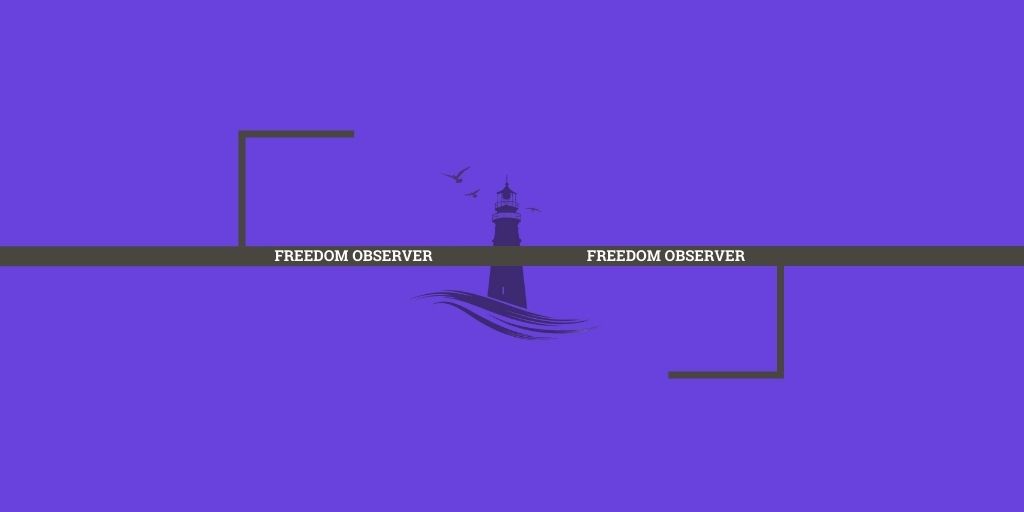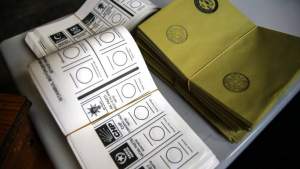
From Editor-in-Chief
Among the events that occurred following the publication of the previous Freedom Observer, one of the most controversial incidents was the speech given by Meral Akşener, the leader of the IYI Party. In her remarks, she commemorated what she referred to as ‘murders committed with chivalry.’ Given her statist-nationalist perspective, it was somewhat evident what Akşener meant by ‘honorable murders.’ However, former Prime Minister Tansu Çiller, who once served alongside Akşener in her cabinet as the Minister of Interior, had made it clear years before. She defined such murders as those committed ‘for or on behalf of the state,’ automatically designating their perpetrators as ‘honorable.’
The fact that a politician who served as the Minister of Interior during a time when such state-related murders were prevalent is now praising them is not only alarming but also serves as a reminder that, in Turkey, it is not uncommon for the state to resort to extralegal measures ‘in times of necessity.
The most intriguing development during this interim period was the government’s launch of a “space initiative” just before the local elections. The Turkish “astronaut,” Alper Gezeravci, embarked on a space journey when his spacecraft was launched on January 19 with international cooperation from Florida, USA. According to the official statement, the purpose of this mission was to “conduct scientific research in space,” but the public has widely viewed it as a “55 million-dollar tourist trip.”
On this occasion, the Minister of Industry and Technology expressed Turkey’s future goal of “conducting an unmanned lunar mission with our indigenous spacecraft.” However, questions arise not only about how a retired pilot with no expertise in space sciences will conduct scientific research on this journey but also in what sense this initiative can be considered a “space move” for Turkey, a country lacking the necessary spacecraft and technological equipment for space research.
In the meantime, the Turkish aspect of Sweden’s NATO membership process, a topic that has garnered considerable domestic and international attention, has reached its conclusion. The Turkish Grand National Assembly has passed the law endorsing Sweden’s NATO membership, which has been subsequently ratified by the President of the Republic and is now in effect. Consequently, it appears that the sale of 40 F-16 aircraft to Turkey, as previously agreed upon by the US administration, will be finalized pending approval from Congress.
Most recently, during his speech at a party group meeting, CHP leader Özgür Özel made an interesting observation and diagnosis regarding corruption and decay within the Turkish administration. In reference to the Interior Ministry’s operations against criminal organizations, the prominent opposition leader offered the following assessment, mentioning Ayhan Bora Kaplan, who is believed to be the leader of a criminal organization: ‘When did this human trafficker, drug lord, and mafia leader emerge? He rose to prominence during Süleyman Soylu’s tenure. Whose hand appointed Soylu? It was the same hand that appointed Ali Yerlikaya. Let’s not mistake what was uncovered during Yerlikaya’s time as a sign of the country being cleansed. Soylu is the one who led the country into this crisis; Erdoğan appointed him, and Erdoğan is ultimately responsible.’
Mr. Özel also emphasized that former Interior Minister Süleyman Soylu bore responsibility for the ‘disgrace and scandal’ related to the treatment of ‘orphaned children’ in entertainment centers in Ankara. He called on President Erdoğan to take appropriate action against Soylu; otherwise, Özel stated that the President would share responsibility for these issues.
In this issue of Freedom Observer, A. Rıza Çoban thoroughly examines the ‘censorship law’ numbered 5651, which was the subject of a Constitutional Court decision mentioned in the previous editorial, from the perspective of rights and freedoms. Ömer Faruk Şen offers commentary on the well-known ‘sermon crisis’ involving an imam and the district governor in Diyarbakır’s Kulp district. In his article, Enes Özkan highlights Treasury and Finance Minister Mehmet Şimşek’s statement that there is no conclusive relationship between exports and the exchange rate. Özkan emphasizes the need for a comprehensive perspective that considers exports and imports when addressing foreign trade issues. He also points out that export growth is influenced by factors such as increased productivity, capacity utilization, and innovation.
We look forward to seeing you in the next issue of Freedom Observer.
* Mustafa Erdoğan
Annulment of Censorship Provision
The Constitutional Court has invalidated Article 9 of Law No. 5651, which served as the basis for blocking or removing numerous news articles and social media content on grounds of violating personal rights.[1] Nevertheless, this annulment provision will take effect nine months after the decision’s publication. In other words, the annulled unconstitutional rule will continue to be applied, and news will be subject to censorship for an additional nine months. However, such a postponement was unnecessary. The regulation in question had conflicted with the legal system from the outset and was redundant. Our legal framework already provides numerous remedies and protection mechanisms to safeguard personal rights against unjust infringements.
As a reminder, Law No. 5651, titled ‘Regulation of Publications on the Internet and Combating Crimes Committed through Such Publications,’ was enacted in 2007 to safeguard minors from harmful online content. In its initial version, Article 9 of the law stated that individuals whose rights were infringed upon could approach the content or hosting provider to request the removal of content and the right to reply. However, following the release of certain audio recordings on the Internet after the December 17-25 investigations, Article 9 underwent a complete overhaul through Law No. 6518 in 2014. This amendment allowed individuals whose personal rights were violated to directly apply to criminal peace judgeships to request the blocking of access. Criminal peace judges must decide on these requests within 24 hours. Content owners are not aware of the decision-making process, nor is it foreseen that these decisions will be notified to the content owners. Moreover, it is envisaged that the criminal judgeships of peace will review the objections to these decisions in a closed circuit. In 2020, with Law No. 7253, criminal judgeships of peace were granted the authority to decide on the removal of content in addition to the measure of blocking access.
This regulation has introduced a peculiar remedy within the legal system. Firstly, this mechanism does not function as an interim injunction in a civil case or a protective measure in a criminal case; instead, it operates as an independent legal protection mechanism. The decision is finalized upon appeal, and the injunction remains in force indefinitely. In practice, this rule has evolved into a comprehensive censorship mechanism, serving as a tool to make critical news and content invisible or eliminate it altogether.
According to the 2022 EngelliWeb Report by the Freedom of Expression Association, 35,023 news articles (URL addresses) were blocked, and 29,253 news articles (URL addresses) were removed or deleted due to 6,509 different decisions issued by 543 different judgeships between 2014 and 2022 under Article 9.2 The majority of the blocked or removed news and content were related to high-level politicians or public officials. Many news items with historical significance were also rendered invisible based on this provision.3
The Constitutional Court has issued a series of decisions aimed at preventing the abuse of this rule. Firstly, in 2017, in its semi-pilot decision in the Ali Kıdık case, the Constitutional Court ruled that access-blocking orders should only be issued in exceptional cases where a “prima facie violation” can be established.4 Despite this, criminal judgeships of peace continued to issue access blocking and content removal orders without considering the case law of the Constitutional Court.
According to the 2022 EngelliWeb report, although the “prima facie violation” assessment introduced in the Ali Kıdık decision of the Constitutional Court is mandatory for criminal judgeships of peace, it was found that this decision was cited in only 11 per thousand of the decisions issued in 2019 and very few access blocking decisions. In 2020, this rate rose to 62 per thousand; in 2021, it reached 65 per thousand; and in 2022, it climbed to 96 per thousand. However, in the cited decisions, a proper assessment of prima facie violation was generally not conducted.”5
As a result, the number of individual applications filed with the Constitutional Court regarding access blocking and content removal decisions made under this provision has significantly increased. Finally, in 2021, the General Assembly of the Constitutional Court, in its decision concerning the Keskin Kalem Yayıncılık ve Ticaret A.Ş. and Others Application, identified structural issues within Article 9 of Law No. 5651 and opted to implement a pilot decision procedure. In this ruling, the Court highlighted that the existing regulation lacked adequate procedural safeguards and failed to comply with the principle of equality of arms.6 Consequently, it decided to transmit a copy of the decision to the Turkish Grand National Assembly, urging the establishment of new regulations. Furthermore, it suspended the examination of approximately 400 pending applications.
Despite amendments made to Law No. 5651 by Law No. 7418 within the prescribed one-year period, no changes were implemented in the direction outlined by the Constitutional Court’s decision. As a result, the Constitutional Court annulled Article 9 of Law No. 5651 by merging an annulment case with an objection application.
However, it’s important to note that this annulment decision does not fully resolve the issue of censorship. The delay in implementing the annulment is a significant concern, and there is skepticism about whether the new regulation will improve.
* Ali Rıza Çoban – Constitutional Lawyer
Imam and District Governor’s ‘Sermon’ Crisis
In Diyarbakır’s Kulp district, there are allegations that District Governor Burak Akeller physically confronted the imam who was delivering the sermon at a mosque for skipping two lines. Akeller is accused of asking, “Are you a terrorist?” while using offensive language towards the imam and physically assaulting him with a microphone. Following the incident, the imam filed a complaint supported by a medical report detailing his injuries. The governorate has initiated an investigation into the matter. District Governor Akeller has responded to the allegations by stating, “During the sermon, a prayer for our martyrs was being recited, and the imam did not read this part.”7
The incident between the district governor and the imam, along with the subsequent events, has evolved into a series of peculiar developments. This crisis has not only unveiled the divisions within the ruling coalition but has also highlighted the concerning composition of the bureaucracy and the behavioral patterns of civil servants. While a civil authority has the option to issue a verbal warning initially, preferring insult and physical aggression is not even considered an exception in Turkey, where we find such behaviors uncommon. To comprehend this emerging trend, it is essential to examine the criteria used to appoint individuals like Akeller, who display aggressive behavior, to these positions.
What is no secret is that in recent years, to secure positions in these roles, individuals often need to secure references or, more precisely, engage in what is colloquially known as “torpil,” primarily through various organizations, especially political parties. It is also widely acknowledged that certain quotas are allocated to these organizations, with the MHP being a prominent source of such “references” recently. Regrettably, public officials with affiliations to the MHP, as evident in their attire, the issues they prioritize, and the moral support they receive from the party during crises, sometimes seem immune from legal consequences for their impulsive behavior.
Perhaps even more unexpected than the district governor’s behavior was the response from various provincial and district administrators from across Turkey, who initiated a social media campaign in support of Kaymakam Akeller. Some district governors, like Kadir Ulusoy, resorted to social media to insult certain union members involved in the controversy.
On the other hand, this crisis has brought the divisions between the AKP and the MHP, which have been a topic of public discussion for some time, into sharper focus. It is widely debated that this incident goes beyond a typical legal case; it has unveiled discord among the actors within the alliance. Organizations like Mil-Diyanet-Sen and Memur-Sen criticized the district governor in their statements. However, many district governors criticized these statements and defended Akeller. MHP leader Devlet Bahçeli also criticized the district governor, saying, “I kiss his immaculate forehead,” and added, “Getting a battery report for a scratch is not a Muslim attitude.” Interior Minister Yerlikaya also issued a veiled statement of support in a tweet. Zafer Party expressed support for the district governor, while the Dem Party condemned him. Meanwhile, the AKP has remained silent on the matter. Additionally, it is claimed that two tribes in the Kulp district have become embroiled in a conflict as a result of this crisis.8
* Ömer Faruk Şen – Ph.D. – Missouri University
Turkey’s Export and Currency Test
Mehmet Şimşek, the Minister of Treasury and Finance of the Republic of Turkey, shared his perspective on the relationship between exports and exchange rates in a post on January 26, 2024. Şimşek stated, “The primary factor influencing exports is foreign demand, and the exchange rate has a limited impact. In the period from 2003 to 2013, the nominal basket exchange rate increased by an annual average of 3.3 percent, while real exports grew by 7.1 percent. However, from 2018 to 2023, despite a 36.4 percent increase in the exchange rate, our exports only rose by 5 percent. Achieving a larger share in global trade and securing lasting gains can only be realized through improved productivity, innovation, the creation of high-added value, and effective branding.
The Minister’s statements are not entirely without merit. Indeed, as he pointed out, Turkey’s exports did experience the growth he mentioned between 2003 and 2013. However, it is a well-established fact that every country in the world participates in trade, and foreign trade comprises two fundamental aspects: exports and imports. In other words, countries are engaged in both exporting and importing. Surprisingly, Minister Şimşek did not make any reference to imports in his remarks. Nonetheless, it is essential to emphasize that a comprehensive understanding of foreign trade can only be gained when both imports and exports are evaluated together. Analyzing factors such as productivity and innovation based solely on export data may not provide a complete picture.
Therefore, it is important to examine foreign trade data from 2003 to 2013 to assess Şimşek’s claims. In 2003, Turkey’s foreign trade deficit, representing the gap between imports and exports, amounted to approximately 22 billion dollars, with the ratio of exports to imports standing at 68.1. However, by 2013, the year Şimşek identifies as a pivotal point, the foreign trade deficit had increased to approximately 100 billion dollars, and the ratio of exports to imports had declined to 61.9.
In his post, Şimşek directs his remarks towards those advocating for the depreciation of the Turkish Lira (TL) to boost exports. However, in doing so, he either misinterprets the period between 2003 and 2013 or intentionally omits the import aspect to create a misleading narrative. Many economists, including myself, assert that during that period, productivity and capacity utilization rates did not witness significant improvements, and the country’s growth was predominantly driven by consumption rather than production.
For a country like Turkey, which consistently relies on foreign investment, a substantial rise in the foreign trade deficit renders the nation fragile and susceptible to risks. The developments post-2013 cannot be solely attributed to the absence of figures like Ali Babacan and Mehmet Şimşek. Conversely, during their tenures, the Turkish Lira (TL) remained overvalued, and imports surged at an astonishing rate while productivity stagnated. Furthermore, there was no significant surge in the value of exports per unit.
While Minister Şimşek is correct in asserting that innovation, among other factors, is essential to enhance a country’s share in global trade, it is worth noting that neither during his initial term nor in the current administration has there been a comprehensive institutional framework or a long-term vision put forth to promote innovation, attract sustained foreign investment, address the issue of reverse brain drain, stimulate increased productivity, maximize capacity utilization, or boost overall capacity.
* Enes Özkan – Economist, Istanbul University
1 AYM, E.2020/76, K.2023/172, 11/10/2023. Şuradan erişilebilir: https://normkararlarbilgibankasi.anayasa.gov.tr/ND/2023/172
2 Yaman Akdeniz, Ozan Güven, EngelliWeb 2022: Sulh Ceza Hakimliklerinin Gölgesinde Anayasa Mahkemesi, s.39. Şuradan erişilebilir: https://ifade.org.tr/reports/EngelliWeb_2022.pdf
3 Yaman Akdeniz, Ozan Güven, EngelliWeb 2021: Üstdüzey Kamu Şahsiyetlerinin İncinen İtibar, Onur ve Haysiyet Yılı. Şuradan erişilebilir: https://ifade.org.tr/reports/EngelliWeb_2021.pdf
4 Ali Kıdık, B. No: 2014/5552, 26/10/2017. Şuradan erişilebilir: https://kararlarbilgibankasi.anayasa.gov.tr/BB/2014/5552
5 EngelliWeb 2022, s. 126.
6 Keskin Kalem Yayıncılık ve Ticaret A.Ş. ve Diğerleri Başvurusu, B. No: 2018/14884, 27.10.2021
7 https://artigercek.com/guncel/kulpta-kaymakam-imam-gerginligi-kavga-cikti-281530h
8 https://haber.sol.org.tr/haber/imam-kaymakam-krizi-asiretler-kavgasina-dondu-389566#google_vignette





